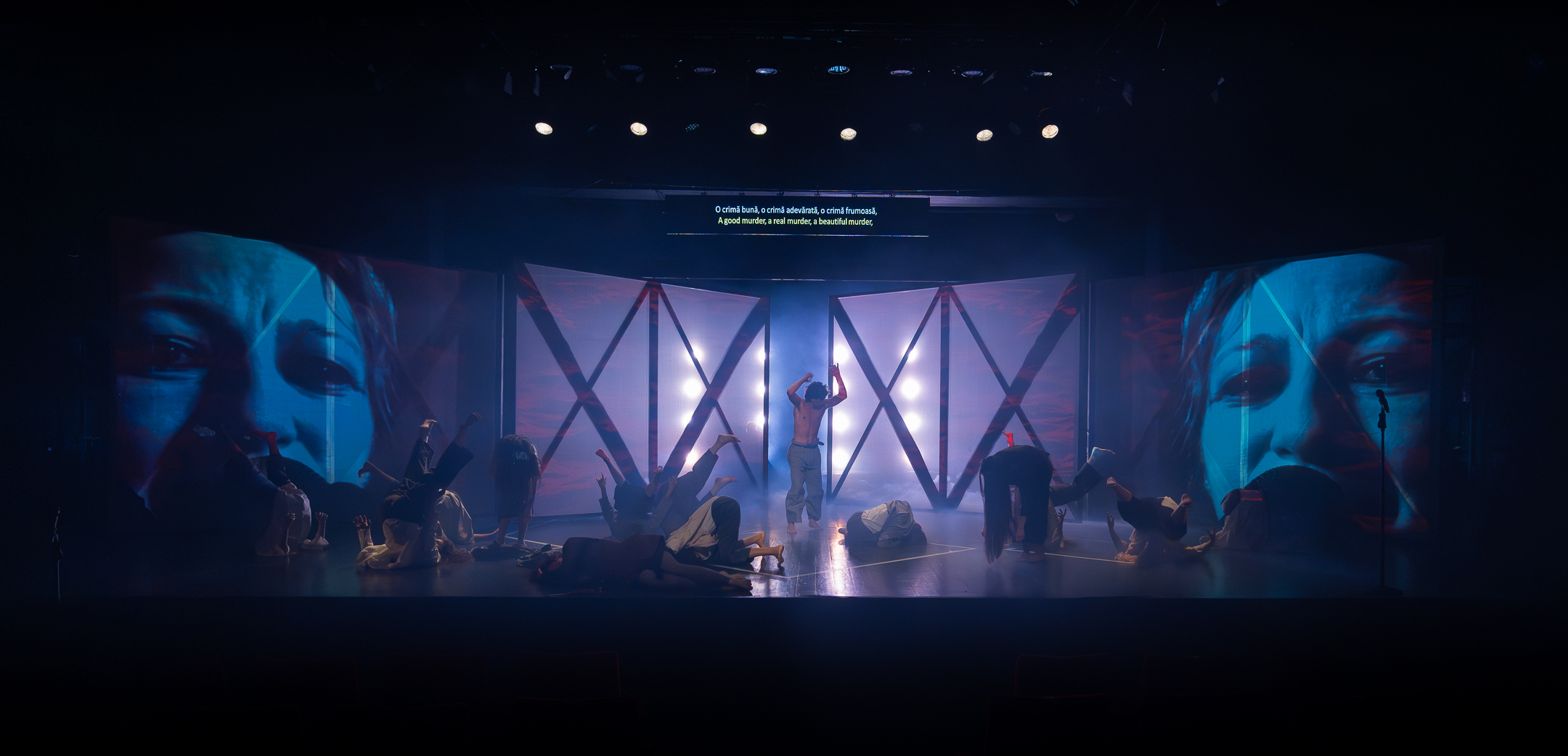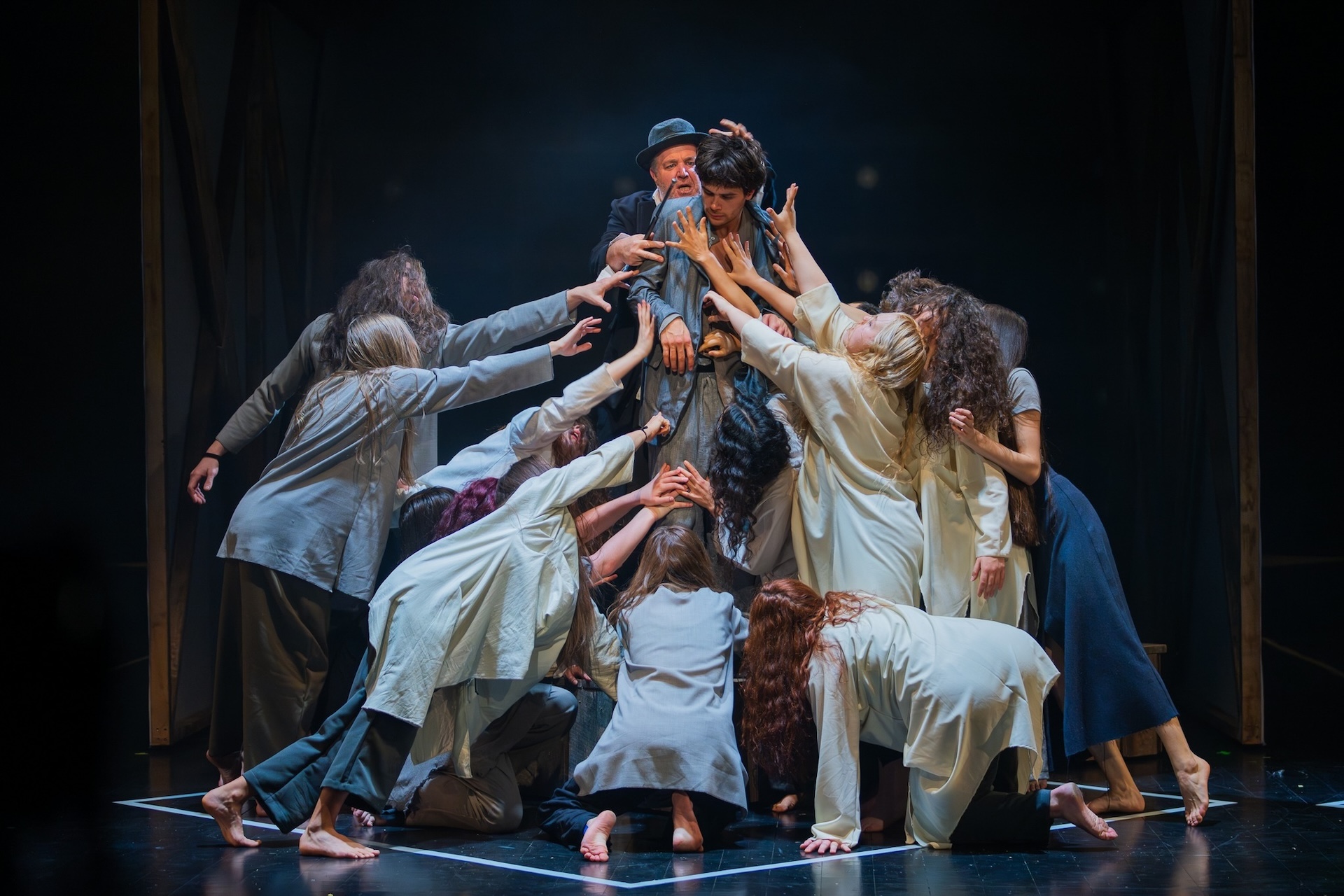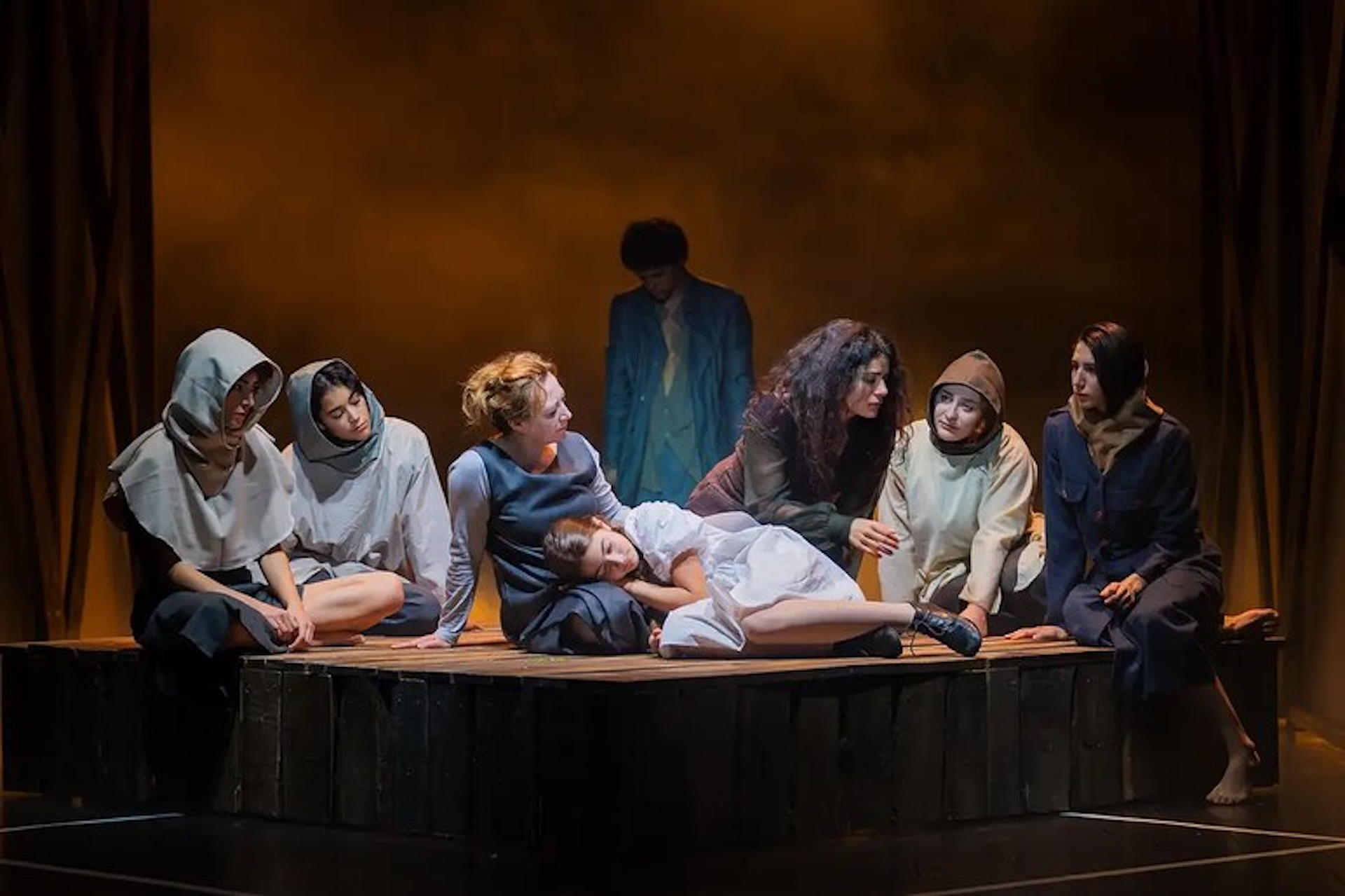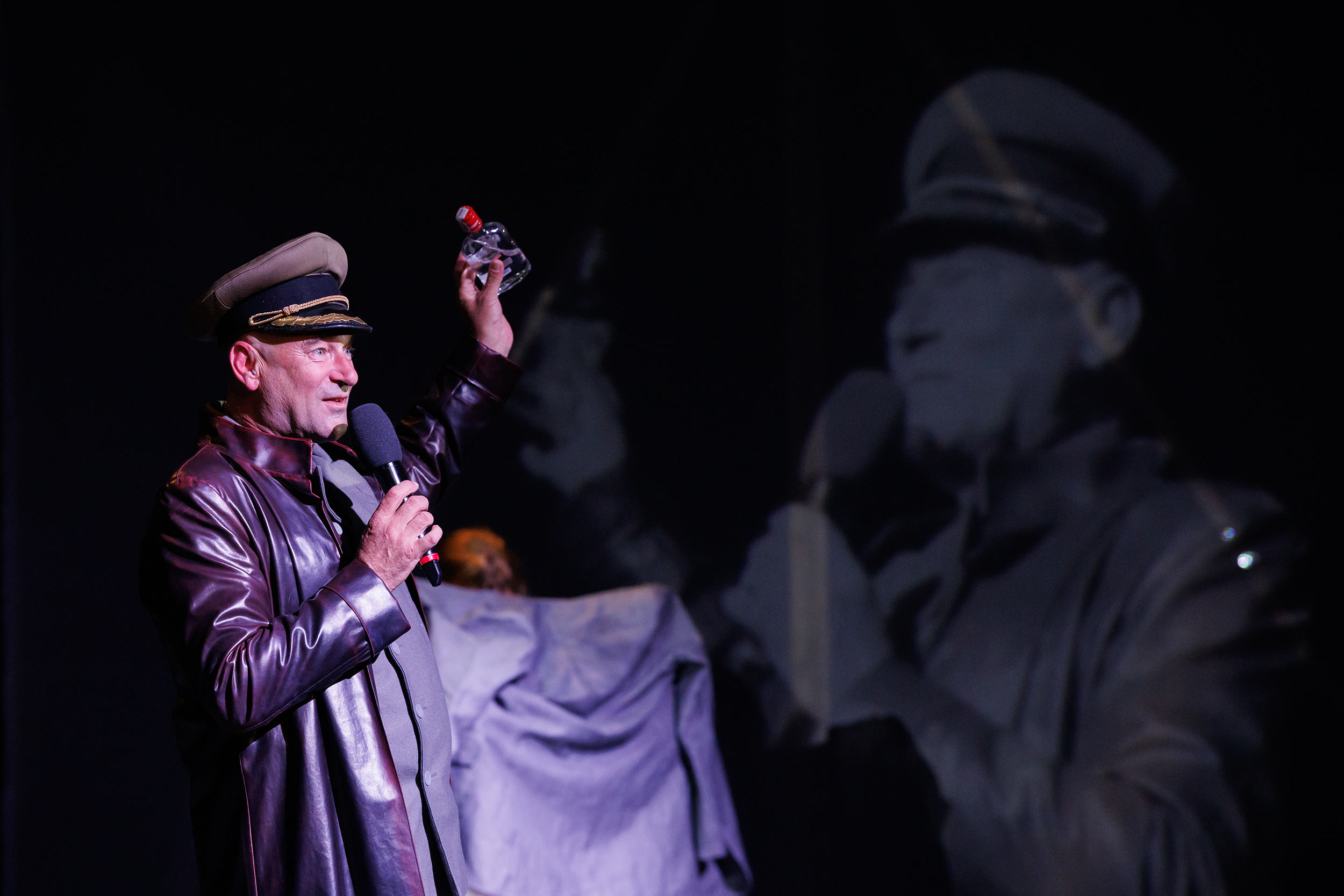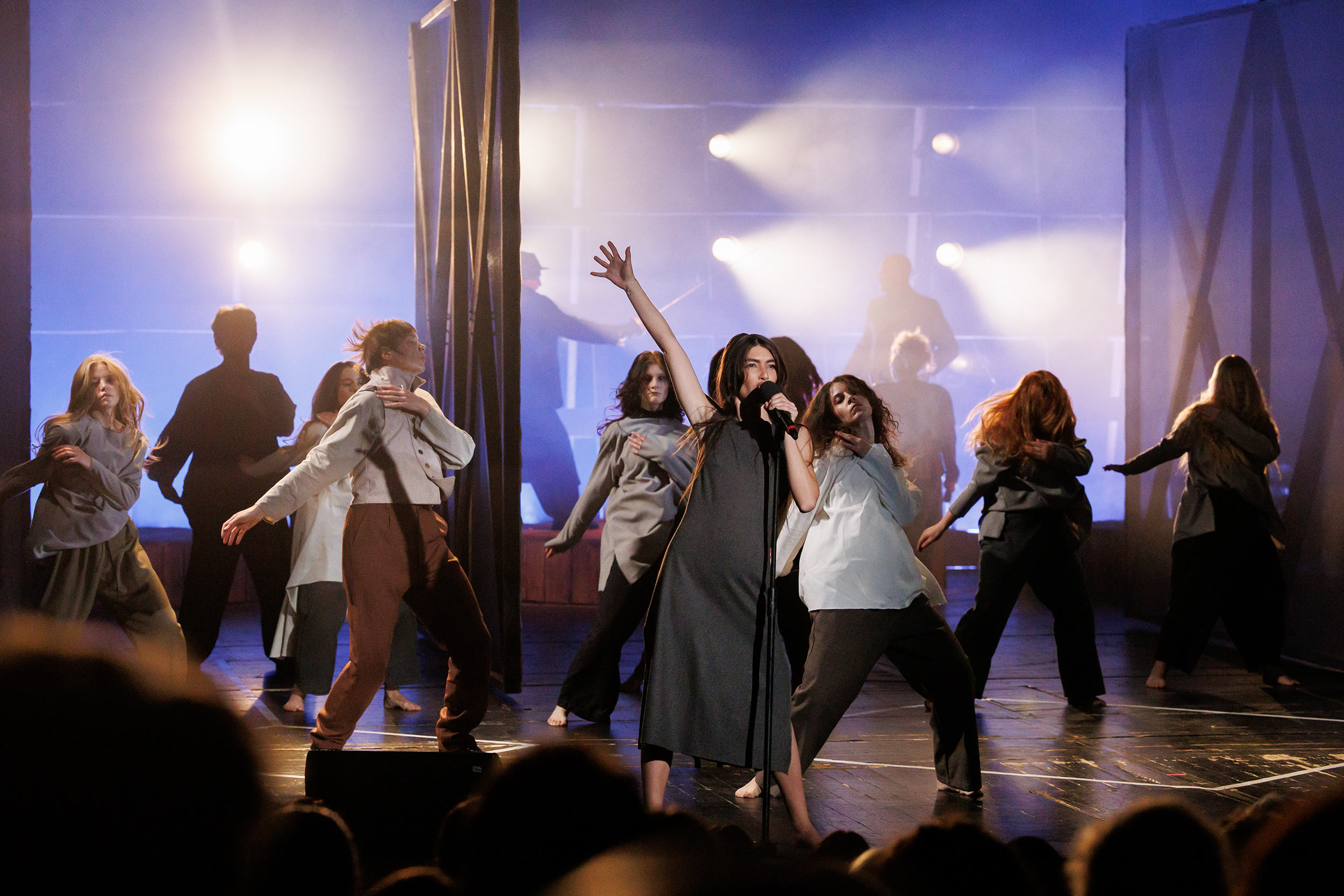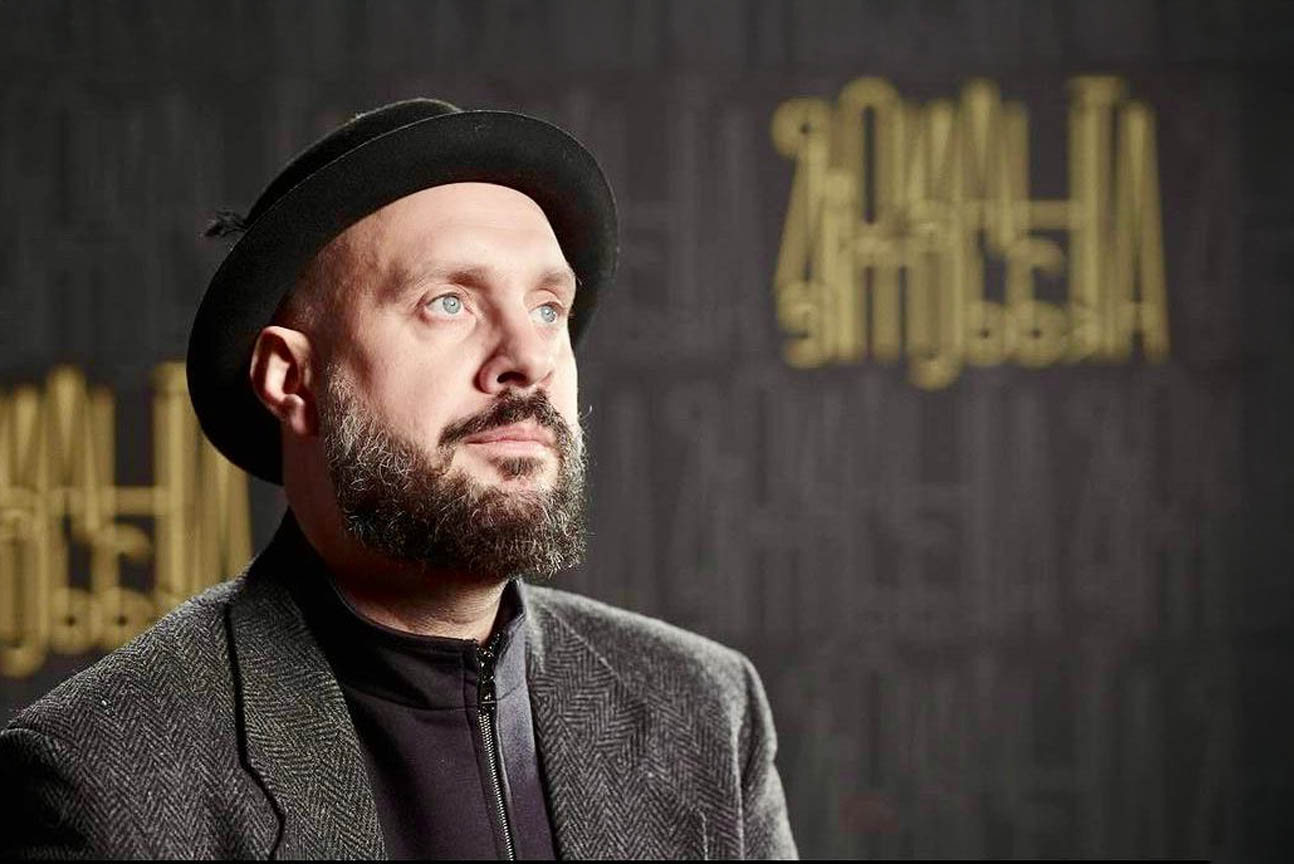
Hunor Horváth
Country: Romania
Biography
Hunor Horváth is a Hungarian Horváth director, playwright, and cultural manager trained in Germany, Austria, and Switzerland. He has been appointed as interim director of the “Csiky Gergely” Hungarian State Theatre, since May 2025.
Since 2019, he has led the German Department of the “Radu Stanca” National Theatre in Sibiu, where he tripled audience numbers and built a stable, multilingual team with international visibility.
With over 15 years of experience, he has served as co-director of the Athanor Academy in Passau, lecturer at the Bern University of the Arts, and head of international relations for the Sibiu International Theatre Festival.
He was nominated for a UNITER award for his direction of Woyzeck, which won Best Light Design and the Audience Award in 2023. In 2024, he received another nomination for Blood Wedding, recognized for Best Video Design.
Woyzeck
By: Georg Büchner
Adapted by: Hunor Horváth
With: Johanna Adam, Emöke Boldizsár, Daniel Bucher, Eva Frățilă, Patrick Imbrescu, Fabiola Petri, Daniel Plier, Theodora Sandu, Ana Tiepac, Gyan Ros Zimmermann, Roxana Armenciu, Ada Bicfalvi, Ștefan Chelimîndră, David Cristian, Ioana-Alberta Dima, Isabela Haiduc, Maria Maftei, Ania Petrean, Malena Silberschmidt, Andra Stoian, Ana-Maria Ștefan, Melania Veselu, Anna Voinea
Directed by: Hunor Horváth and Edith Buttingsrud Pedersen
Stage design: Előd Golicza
Costumes: Zsofia Gabor
Choreography: Edith Buttingsrud Pedersen
Original music: Mihai Dobre
Photoplay music: Hunor Horváth
Light design: Dan Basu
Sound design: Michael Bischoff
Producer: Radu Stanca National Theatre Sibiu – German department
Duration: 2h (no intermission)
Performance in German with Romanian and English surtitles
Synopsis:
Büchner’s play is based on the real story of soldier Woyzeck who killed his girlfriend by stabbing and was sentenced to death for it in 1824. Büchner was familiar with the facts of this star criminal case, one that included many legal, medical and psychological reports. His text describes a crime of passion and the aftermath of this tragic event: Woyzeck, “good boy and poor devil”, financially pushed to the lowest fringes of society, humiliated by his superiors, turned to an object of academic study, is at the mercy of his environment’s radical lack of empathy. He thus becomes the culprit after his fears, impulses and desires end up erupting obscenely. But Woyzeck goes far beyond the sad individual case of an abused human being. Büchner uses the “the subject of Woyzeck” to examine the question of our dependence on social conditions that “lie beyond us,” on individual freedom and fateful determination. In his struggle for existence against this unscrupulous and depraved society, which has lost all morality, Woyzeck ultimately has no chance, and nothing left to fight his own destruction with.
Woyzeck lives within a social system characterized by a brutality to which everyone is unwittingly subjected. Even those who inflict violence on Woyzeck are caught up in this overall context. Woyzeck becomes the victim of blind, absurd and systematic violence. He is a simple soldier serving a captain as a barber. He cannot support his girlfriend, Marie, and their child on his salary, so he also works as a medical test subject. The consequences of the experiments weaken him so much that he becomes increasingly lost in a world of illusions. Thus Woyzeck – despite his honest efforts to be a good person – ends up swallowed by the abyss in a society that offers him no support.

